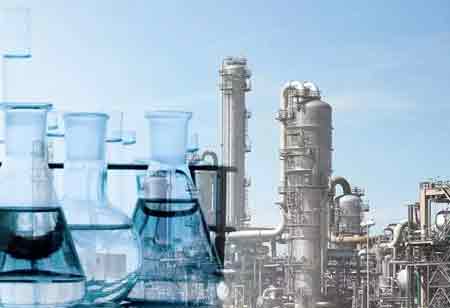This article explores the importance of molecular catalysis in the medical field and discusses the different types of molecular catalysis and the latest advancements.
Fremont, CA: Molecular catalysis occurs when a catalyst molecule speeds up chemical reactions while remaining unchanged. The phenomenon is crucial in various industrial activities, including chemical manufacturing, pharmaceutical production, and fuel synthesis. Key focus areas include the significance of molecular catalysis, the different types of catalysts, and recent developments in this field.
A significant advantage of molecular catalysis is improving the efficiency of chemical reactions. For example, a polymer production catalyst can accelerate the reaction and reduce waste production. As a result, the reaction can occur at lower temperatures and pressures, as the catalyst reduces the activation energy needed to start it. This reduces energy consumption and mitigates any detrimental environmental impact caused by the process.
Significance of Molecular Catalysis
Molecular catalysis is a fundamental component in various chemical reactions that would otherwise proceed too slowly or not at all. The absence of catalysis would mean that many everyday products, such as plastics and fuels, would not exist. Catalysis is crucial in minimizing the energy needed for chemical reactions, thus enhancing sustainability and cost-effectiveness. Numerous dependable molecular catalysts play a significant role in chemical reactions. Researchers can now gain a detailed and precise understanding of the mechanisms included in chemical reactions. Chemical changes typically involve several distinct and sometimes interconnected reactions that lead to a transformation. One can outline a step-by-step process illustrating how a catalyst facilitates a specific chemical transformation by utilizing well-established reactions.
Types of Molecular Catalysis
Various categories of molecular catalysts exist, encompassing homogeneous and heterogeneous catalysts. Homogeneous catalysts share the same phase as the reactants and are typically soluble in the reaction mixture. Conversely, heterogeneous catalysts are situated in a distinct phase from the reactants and are commonly solid substances introduced into the reaction mixture.
Molecular catalysts can also be classified based on their mode of operation. For instance, enzymes serve as biological catalysts that reduce the activation energy necessary for a reaction. Transition metal complexes, such as those incorporating ruthenium or palladium, are frequently used as industrial catalysts due to their capacity to engage in multiple redox reactions.
Latest Developments in Molecular Catalysis
Recent advancements in molecular catalysis have been primarily directed toward creating novel catalysts that exhibit enhanced efficiency, selectivity, and sustainability. One prominent area of focus involves the design of catalysts for reducing CO2, which holds promise in combating climate change by transforming CO2 into valuable end products. Notably, scientists have engineered molecular catalysts utilizing metals like copper, iron, and others to facilitate the conversion of CO2 into fuel sources such as methanol and ethanol.
Furthermore, ongoing research efforts are dedicated to developing catalysts tailored for the selective oxidation of hydrocarbons. Selective oxidation poses a significant challenge due to the propensity for unwanted byproducts to form. Nevertheless, recent breakthroughs have led to the creation of catalysts leveraging Metal-Organic Frameworks (MOFs) that exhibit exceptional efficiency in selectively oxidizing alkanes into alcohols or aldehydes.
Researchers are currently investigating the potential of catalysts in biomass conversion. This process entails transforming biomass into valuable chemicals and fuels. A particularly encouraging method involves utilizing enzymes and other biocatalysts to convert lignocellulosic biomass into sugars, which can subsequently be transformed into biofuels.
In summary, molecular catalysis is crucial in facilitating numerous significant chemical reactions to occur efficiently and sustainably. Diverse catalysts, such as homogeneous and heterogeneous catalysts, are applied in various industrial procedures.
Advancements in molecular catalysis have concentrated on creating fresh catalysts for CO2 reduction, selective oxidation of hydrocarbons, and biomass conversion. These breakthroughs hold promise for enhancing the sustainability and efficiency of chemical reactions and tackling several pressing societal issues.

